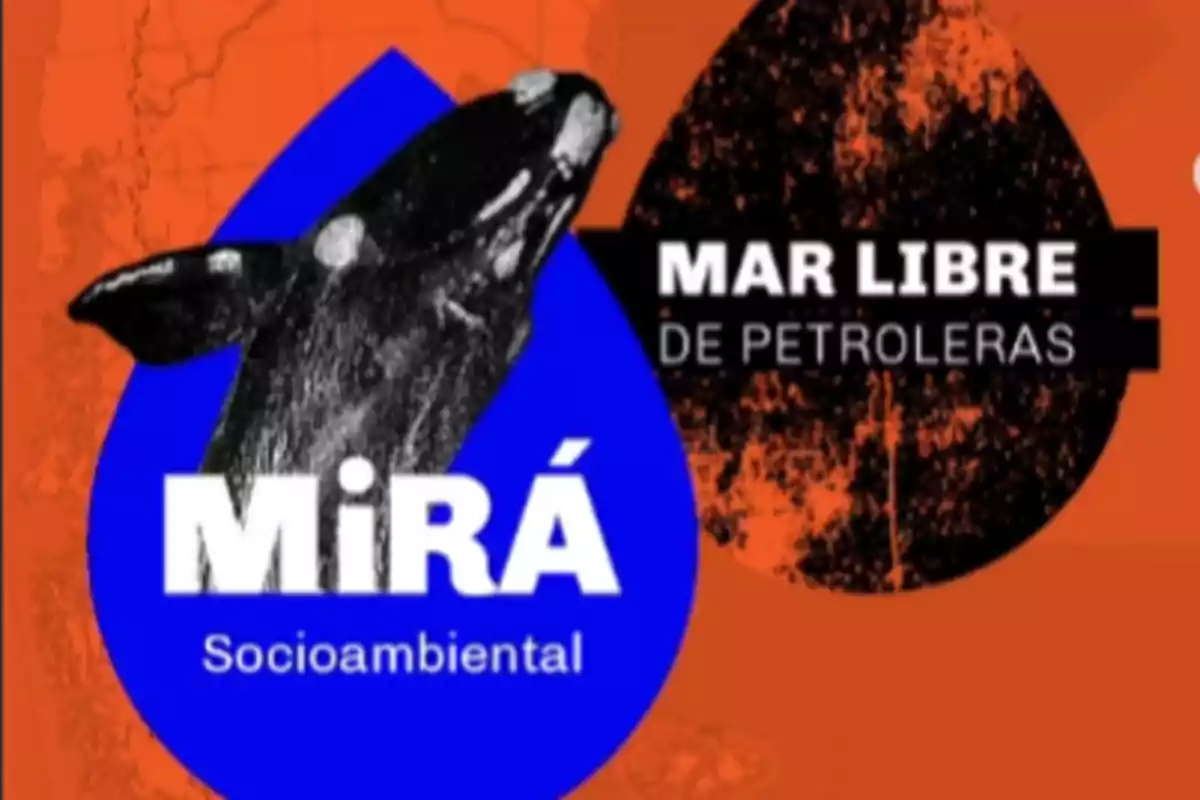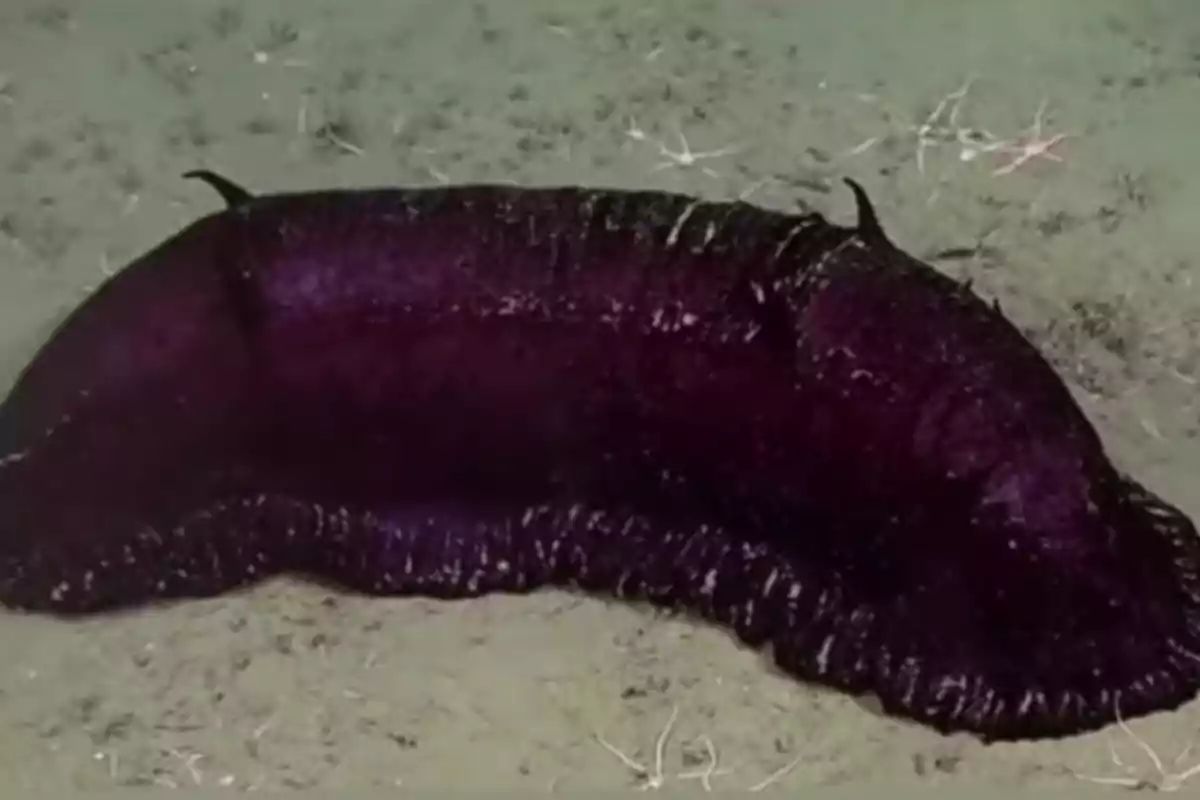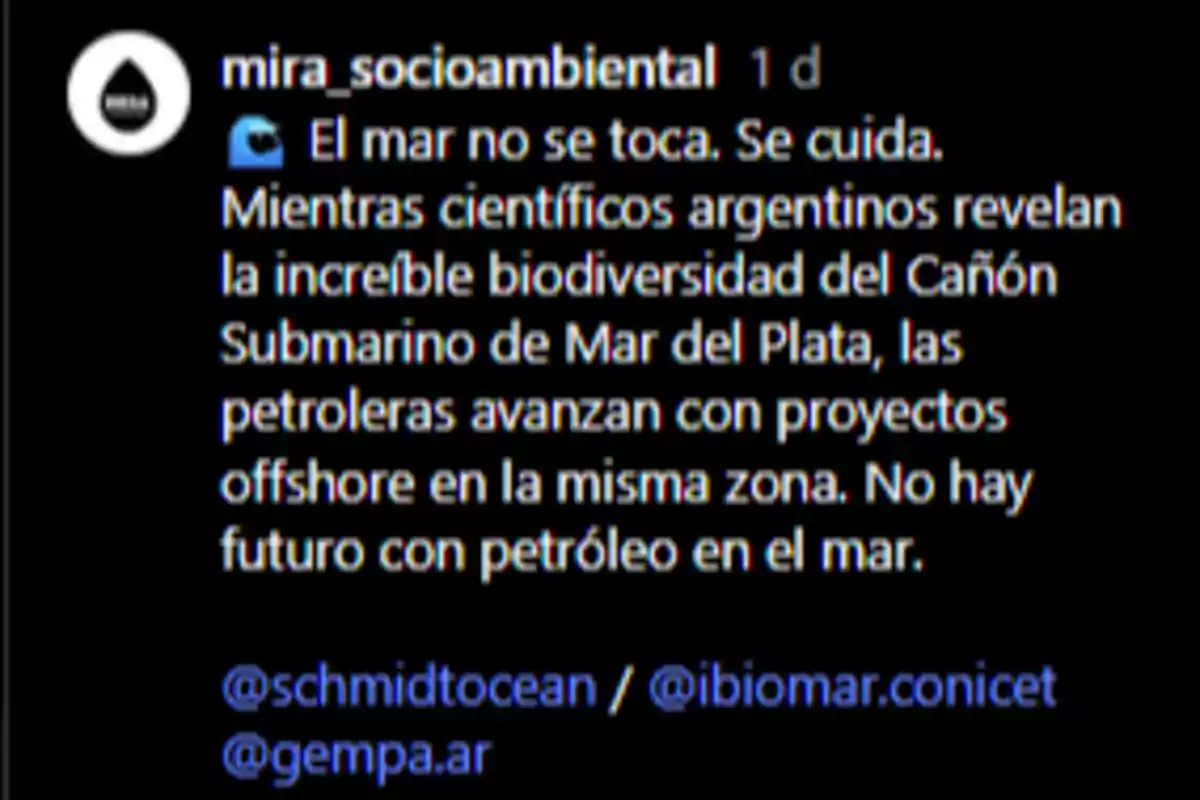
An NGO admitted that the reason for CONICET's stream is to stop offshore oil.
The research led by CONICET aims to discourage Argentine energy development and destroy the economy
In recent days, the scientific expedition "Talud Continental IV," promoted by CONICET together with the Schmidt Ocean Institute, based in California, United States, went viral and was widely celebrated and publicized by environmentalist groups in Argentina.
In this context, from La Derecha Diario we warn that behind the media coverage and live broadcasts from the depths of the Argentine sea, foreign interests are hidden, aiming to discourage Argentine energy development, especially regarding future offshore drilling led by oil companies such as YPF.
This statement was ultimately confirmed after a post on social media by one of the environmental NGOs participating in the CONICET mission, where it openly revealed the motives behind the "research."

The expedition, which uses a ship from the Cayman Islands, United Kingdom, broadcasts real-time images from the Mar del Plata submarine canyon and allows viewers to observe species from the ocean floor at more than 3,500 meters (11,483 feet) deep.
According to the researchers, the goal is to study the biodiversity of a biogeographically critical area, where the warm Brazil current and the cold Malvinas current meet. However, the symbolic impact of these images, which generates strong empathy in the audience, seeks other objectives.
On its Instagram account, the environmental NGO known as "Mirá Socioambiental" openly stated that the mission's objective is to promote a negative campaign so that offshore oil extraction doesn't take place in Argentina.
"The sea is not to be touched. It is to be cared for. While Argentine scientists reveal the unbelievable biodiversity of the Mar del Plata Submarine Canyon, oil companies are moving forward with offshore projects in the same area. There is no future with oil in the sea," the NGO wrote on its Instagram account, confirming that it seeks solely to harm Argentina's energy development and destroy the country's economy.

"In case you don't know, this tweet is not a coincidence. It's a PsyOp by Argentina's enemies so that you feel empathy for the little sea potato and oppose YPF extracting oil," a user wrote on social media, in response to another person's tweet celebrating CONICET's initiative.
A psy-ops
Psy-ops (psychological operations) are strategies used by governments, intelligence agencies, or pressure groups to influence the perceptions and decisions of societies without the need for direct force. Through the use of media, NGOs, or seemingly neutral campaigns, they seek to manipulate emotions and shape public opinion, especially on sensitive issues such as the environment or human rights.
In this case, the visual and emotional approach of the Talud Continental IV project is designed to position a hidden message of "protecting the Argentine seabed" from any type of intervention, even if it responds to national energy interests or drives the country's growth.
Background
This would not be the first time this has happened. In 2021, the Argentine province of Tierra del Fuego banned by law the salmon farming in the Beagle Channel. The decision, celebrated by left-wing environmental NGOs such as Greenpeace and Rewilding Argentina, was driven by an intense media campaign warning about the supposed "ecological dangers" of this industry.
However, in countries such as the United Kingdom, where these environmental campaigns are promoted, salmon farming under similar conditions continues and faces little criticism. In fact, the United Kingdom recently announced that it plans to produce about 50,000 tons of salmon in the Malvinas Islands. Now, with this new campaign, it seems that once again they are seeking to undermine the economy and the future of Argentines.
More posts: